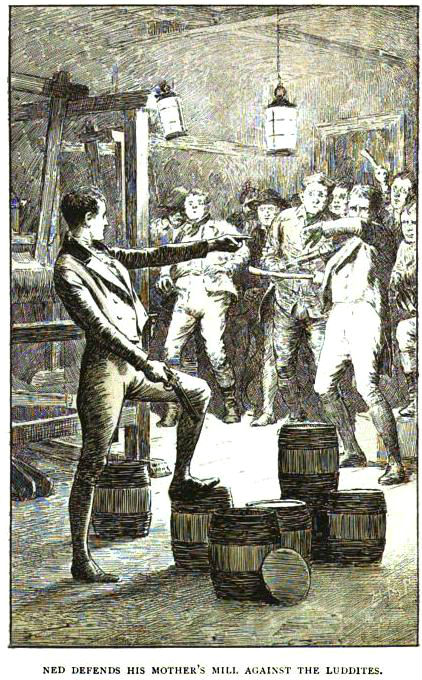Thanks to the new machines, the money that had allowed a hundred weavers to live safely and comfortably could now be saved by the factory owner, or spent on himself. Of course, he still needed workers to manage the machines. But only unskilled workers, and not many of them.
But the worst thing was this: the city's hundred weavers were now out of work and would starve, because one machine was doing their work for them. And naturally, rather than see his family starve a person will do anything. Even work for a pittance as long as it means he has a job to keep body and soul together. So the factory owner, with his machines, could summon the hundred starving weavers and say: "I need five people to run my factory and look after my machines. What will you charge for that?" One of them might say: "I want so much, if I am to live as comfortably as I did before." The next would say: "I just need enough for a loaf of bread and a kilo of potatoes a day." And the third, seeing his last chance of survival about to disappear, would say: "I'll see if I can manage on half a loaf." Four others then said: "So will we!" "Right!" said the factory owner. "I'll take you five. How many hours can you work in a day?" "Ten hours," said the first. "Twelve," said the second, seeing the job slipping from his grasp. "I can do sixteen," cried the third, for his life depended on it. "Fine," said the factory owner, "I'll take you. But who'll look after my machine while you're asleep? My machine doesn't sleep!" "I'll get my little brother to do it -- he's eight years old," replied the luckless weaver. "And what shall I give him?" "A few pennies will do, to buy him a bit of bread and butter." And even then the factory owner might reply: "He can have the bread, but we'll see about the butter." And that was how business was done.
E.H. Gombrich, A Little History of the World (1935)
